
Exploring the Majestic Bihor Mountains
The Bihor Mountains, located in the heart of Romania, offer a breathtaking escape into nature. This stunning region features lush forests, dramatic cliffs, and serene valleys that will captivate any traveler. The mountains are part of the Apuseni range, known for its unique karst formations and extensive cave systems. Among these, the Scărișoara Ice Cave is a must-see, home to the second largest underground glacier in Europe. For hikers, the Bihor Mountains present a variety of trails, ranging from easy walks to challenging treks. The Padiș Plateau is a popular spot, providing panoramic views and picturesque meadows. Wildlife enthusiasts can also look forward to encounters with diverse fauna, including deer, bears, and rare bird species. In the winter, the area transforms into a snow-covered wonderland, perfect for skiing and snowboarding. The local culture adds another layer of charm to your visit. Traditional villages scattered throughout the mountains offer a glimpse into rural Romanian life. Here, you can enjoy authentic cuisine, local crafts, and warm hospitality. Whether you're seeking adventure, relaxation, or cultural experiences, the Bihor Mountains have something for everyone.
Local tips in Bihor Mountains
- Bring sturdy hiking boots, as some trails can be rocky and uneven.
- Visit the Scărișoara Ice Cave early in the day to avoid crowds.
- Check local weather forecasts before heading out, as conditions can change rapidly in the mountains.
- Learn a few basic Romanian phrases to enhance your interactions with locals.
- Carry cash, as some remote areas may not have ATM access or accept credit cards.
Exploring the Majestic Bihor Mountains
The Bihor Mountains, located in the heart of Romania, offer a breathtaking escape into nature. This stunning region features lush forests, dramatic cliffs, and serene valleys that will captivate any traveler. The mountains are part of the Apuseni range, known for its unique karst formations and extensive cave systems. Among these, the Scărișoara Ice Cave is a must-see, home to the second largest underground glacier in Europe. For hikers, the Bihor Mountains present a variety of trails, ranging from easy walks to challenging treks. The Padiș Plateau is a popular spot, providing panoramic views and picturesque meadows. Wildlife enthusiasts can also look forward to encounters with diverse fauna, including deer, bears, and rare bird species. In the winter, the area transforms into a snow-covered wonderland, perfect for skiing and snowboarding. The local culture adds another layer of charm to your visit. Traditional villages scattered throughout the mountains offer a glimpse into rural Romanian life. Here, you can enjoy authentic cuisine, local crafts, and warm hospitality. Whether you're seeking adventure, relaxation, or cultural experiences, the Bihor Mountains have something for everyone.
When is the best time to go to Bihor Mountains?
Iconic landmarks you can’t miss
Apuseni Natural Park
Explore the breathtaking landscapes and rich biodiversity of Apuseni Natural Park, a must-visit destination for nature lovers and adventurers in Romania.
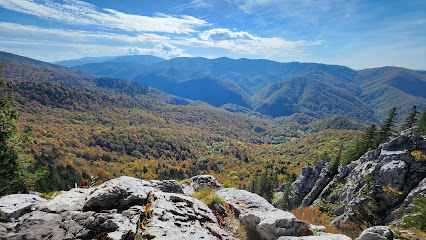
Vârful Bihor
Discover the breathtaking beauty of Vârful Bihor, Romania's highest peak in the Apuseni Mountains, perfect for hiking and nature exploration.
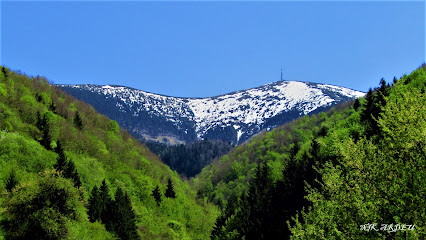
Bulz's Rock
Explore Bulz's Rock: a breathtaking natural wonder in Romania, offering stunning views, hiking adventures, and rich local culture.
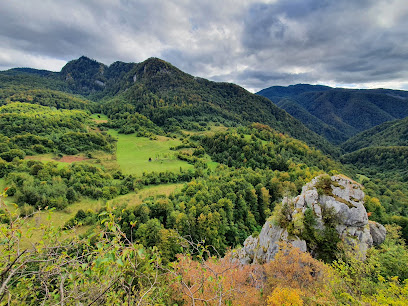
Portile Bihorului Cave
Explore the enchanting Portile Bihorului Cave in Romania, a natural masterpiece with stunning rock formations and rich biodiversity for adventurous travelers.
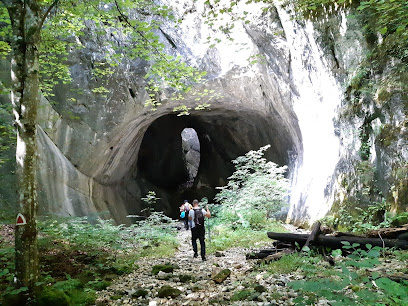
Muntii Bihorului
Explore the breathtaking landscapes of Muntii Bihorului, Romania's majestic mountain range, ideal for hiking, camping, and immersing in nature's beauty.
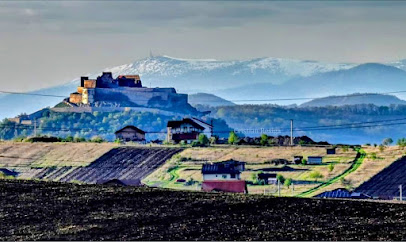
Unmissable attractions to see
Cascada Pișoaia
Explore the enchanting Cascada Pișoaia, a breathtaking waterfall in Romania's picturesque nature preserve, perfect for relaxation and adventure.
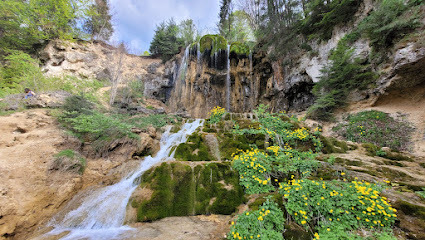
Mănăstirea Izbuc
Discover the Monastery of Izbuc, a serene sanctuary where miraculous waters and rich history unite in a breathtaking natural setting.
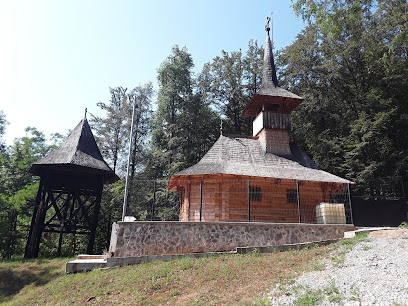
Ordâncușa Ravine
Explore the breathtaking beauty of Ordăncusa Ravine, a hidden gem in Romania perfect for nature lovers and adventure seekers.
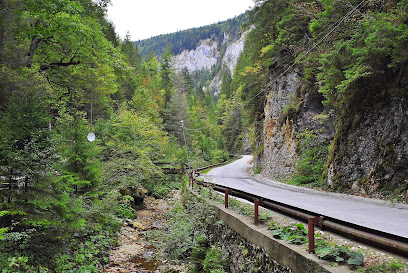
Groapa Ruginoasa - Valea Seacă
Explore Groapa Ruginoasa, a geological masterpiece in Valea Seacă, offering breathtaking views and a serene escape into nature's beauty.
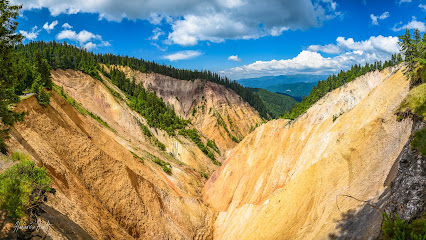
Ionele's Door Cave
Explore the enchanting Ionele's Door Cave, a stunning natural wonder in Romania's Apuseni Mountains, filled with rich biodiversity and captivating rock formations.
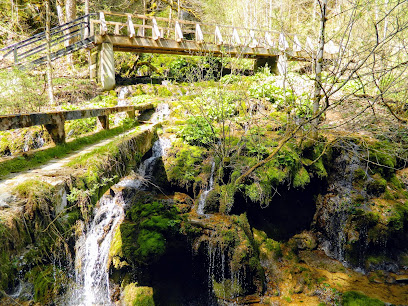
Pârtia Piatra Grăitoare Vartop Bihor
Explore the enchanting Pârtia Piatra Grăitoare in Vârtop Bihor, where thrilling skiing meets stunning landscapes in a winter paradise.
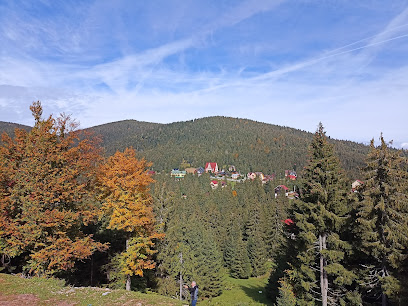
Izbucul Tăuzului
Immerse yourself in the natural beauty of Izbucul Tăuzului, a breathtaking spring in Romania's nature preserve, perfect for relaxation and adventure.
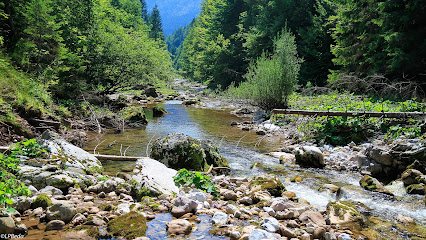
The Museum of Mining and the Roman Galleries
Discover the rich mining history and Roman heritage at the Museum of Mining and the Roman Galleries in Roșia Montană, a captivating tourist attraction.
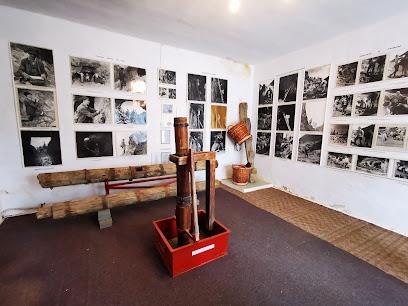
Vartop Glacier Cave
Discover the stunning Vartop Glacier Cave in Romania, a breathtaking natural wonder filled with mesmerizing ice formations and rich biodiversity.
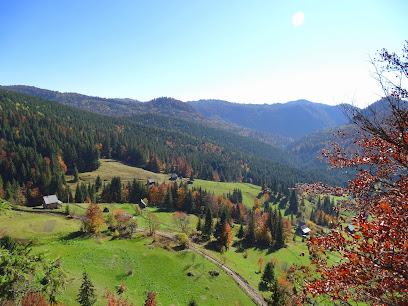
Cheile Albacului
Explore the stunning Albacului Gorges, a natural paradise in Romania, perfect for hiking, wildlife watching, and soaking in breathtaking views.
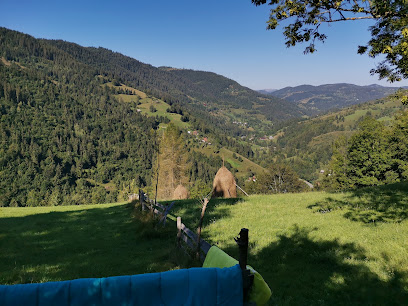
Bulbuci Waterfall
Explore the enchanting Bulbuci Waterfall in Romania's Apuseni Natural Park, a tranquil escape for nature lovers and adventure seekers alike.
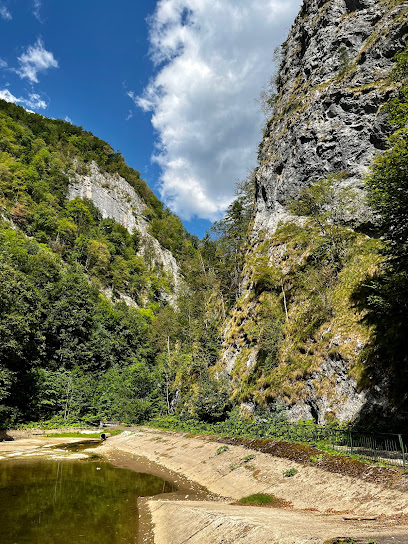
Coiba Mare Cave
Discover the natural beauty and stunning rock formations of Coiba Mare Cave, a must-visit destination for nature enthusiasts in Romania.
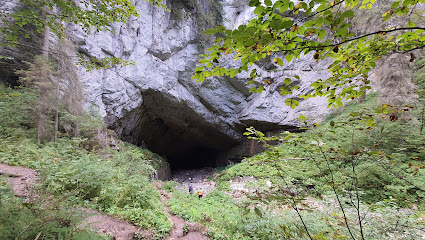
Focul Viu Glacier Cave
Explore the mesmerizing Focul Viu Glacier Cave in Apuseni Natural Park, a stunning natural wonder filled with breathtaking ice formations.
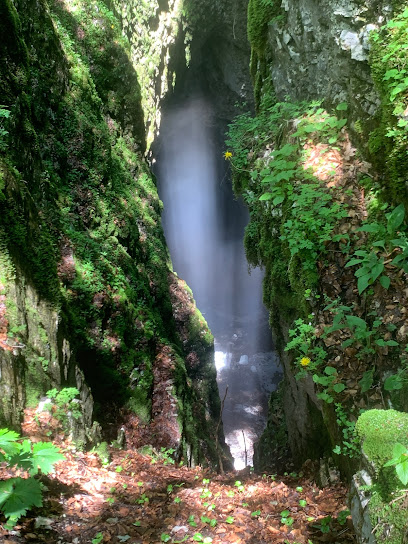
Boga's Valley
Explore the enchanting beauty of Boga's Valley in the Apuseni Mountains, a perfect natural preserve for adventure seekers and nature lovers.
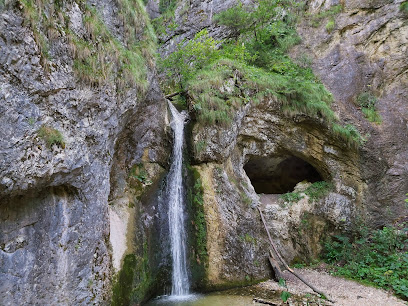
Boga Rocks
Experience the breathtaking vistas and serene trails of Boga Rocks, a stunning hiking area in the heart of Romania's natural beauty.
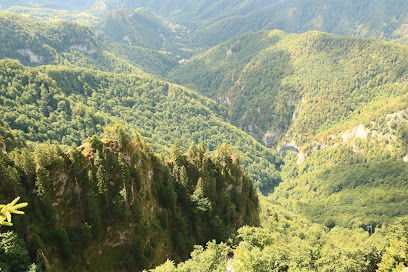
Essential places to dine
ROUTE 60 Restaurant Pensiune DN1 E60 Ciucea
Discover ROUTE 60 Restaurant Pensiune: A perfect blend of authentic Romanian cuisine and cozy accommodations along DN1 highway.
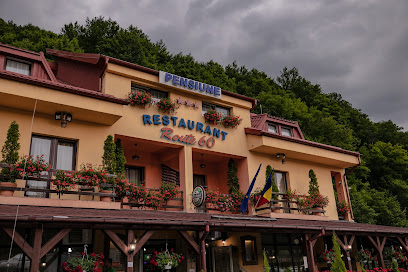
The White Lily
Experience authentic Italian cuisine at The White Lily in Oradea - where delicious pizzas meet warm hospitality.
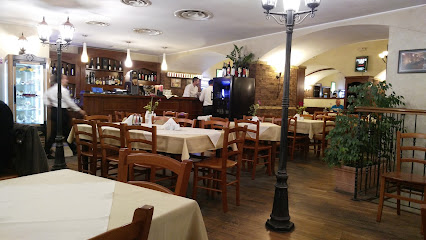
Spoon
Discover authentic Romanian cuisine at Spoon in Oradea - where tradition meets taste in every delightful dish.
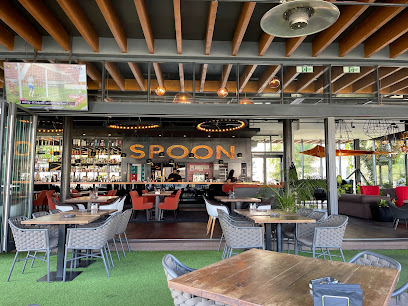
Restaurant Autogrill
Discover delicious meals at Restaurant Autogrill - the perfect stop for travelers along Romania's scenic E60 route.
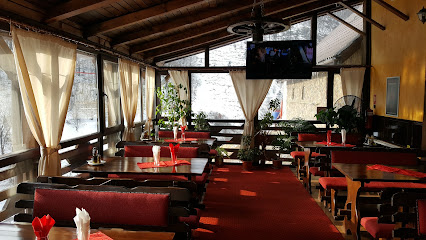
Restaurant Ciuperca
Discover authentic Romanian flavors at Restaurant Ciuperca in Oradea - where tradition meets modern dining in an inviting atmosphere.
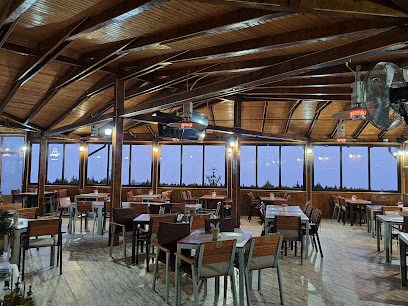
Cyrano
Discover authentic Hungarian and Romanian flavors at Cyrano in Oradea - where every meal tells a story.
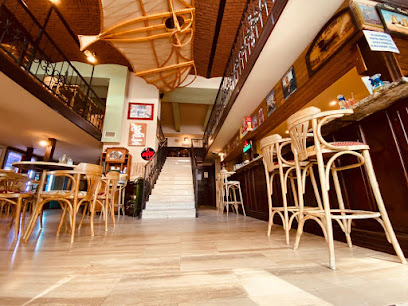
Rosecas
Discover the exquisite fusion of Romanian and international cuisine at Rosecas in Oradea – a fine dining experience like no other.
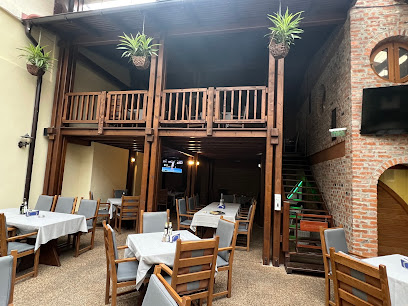
Allegria
Experience the vibrant flavors of Romania at Allegria in Oradea - where culinary excellence meets warm hospitality.
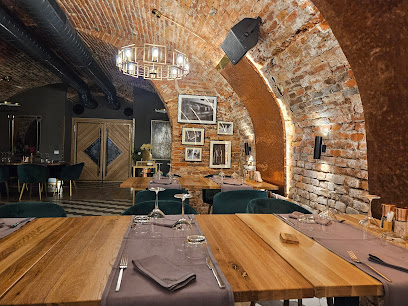
Pensiune-Restaurant-SPA Mama Uța
Discover serenity at Pensiune-Restaurant-SPA Mama Uța - your perfect getaway in Gârda de Sus with exquisite dining and rejuvenating spa services.

Hotel-Restaurant Nelaura
Indulge in authentic Romanian cuisine and cozy accommodations at Hotel-Restaurant Nelaura - your perfect stop on the road!
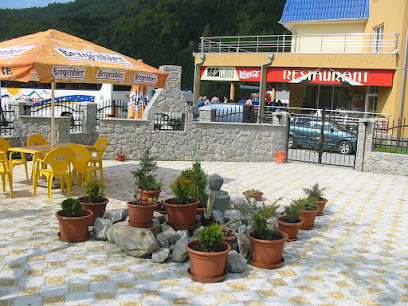
Hotel Four Seasons
Experience luxury and thrill at Hotel Four Seasons - your gateway to Vârtop's natural wonders and adventure sports.
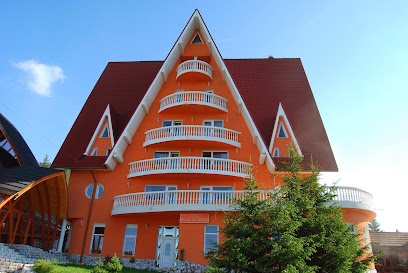
Graf Lebanese & International Cuisine
Discover exquisite Lebanese flavors at Graf Lebanese & International Cuisine in Oradea - a culinary gem offering a rich menu in an inviting atmosphere.
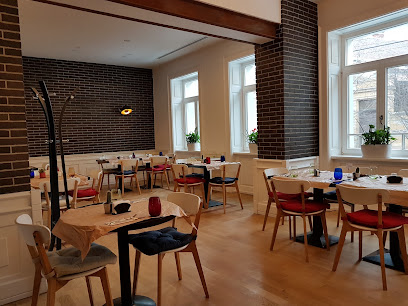
Pensiunea Casa Bucatarului ( A szakács háza )
Experience authentic Romanian hospitality at Pensiunea Casa Bucatarului – where comfort meets traditional cuisine in beautiful Bălnaca.
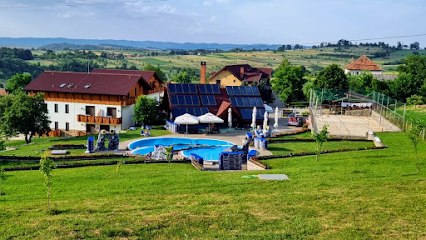
Casa Alesia POIENI
Indulge in exquisite Romanian cuisine at Casa Alesia in Poieni—where fine dining meets local tradition.
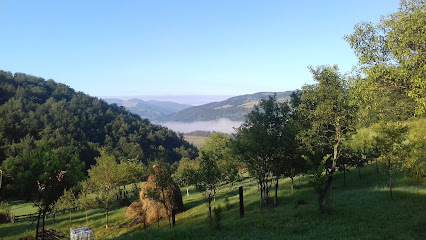
Pensiunea Casa Motului - Restaurant si Cazare Arieseni
Experience authentic Romanian cuisine and warm hospitality at Pensiunea Casa Motului in beautiful Arieșeni.
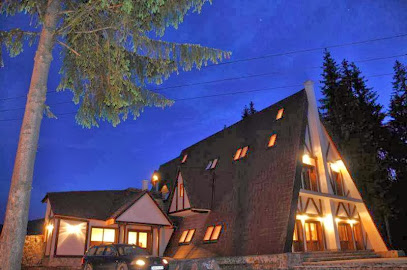
Markets, malls and hidden boutiques
Lotus Center
Discover the ultimate shopping experience at Lotus Center in Oradea, where fashion meets culture in a modern retail paradise.
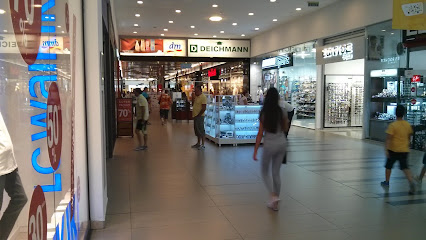
Apuseni Natural Park
Explore the breathtaking beauty of Apuseni Natural Park, a haven for nature lovers and adventurers in Romania.
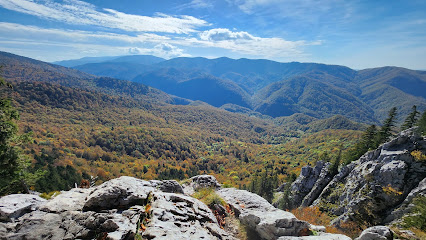
Oradea Plaza
Explore Oradea Plaza, the ultimate shopping destination in Romania, featuring diverse stores, delicious dining, and family-friendly entertainment for everyone.
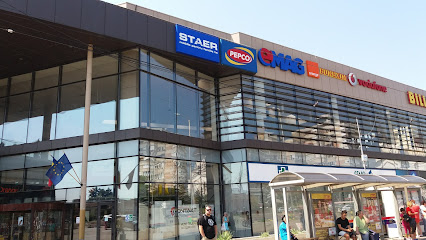
Glăvoi
Experience the tranquility of Glăvoi Campground near Cetetiile Ponorului, where nature meets relaxation in the heart of Romania.
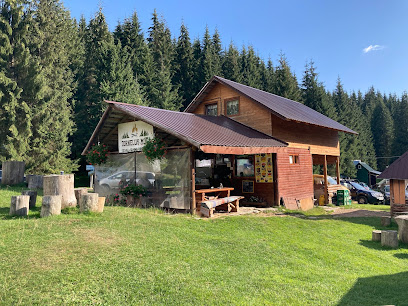
Magazin alimentar
Explore local flavors and essential goods at the heart of Arieșeni with this welcoming grocery store, perfect for tourists and locals alike.
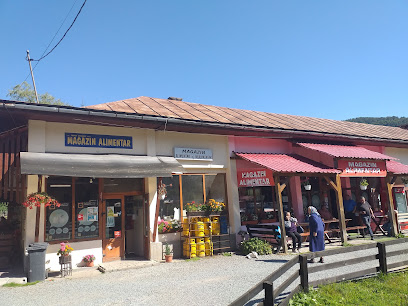
Chic Bijoux - Jewelry Shop
Discover Chic Bijoux in Cluj-Napoca, where exquisite handcrafted jewelry meets impeccable service in a charming gift shop atmosphere.
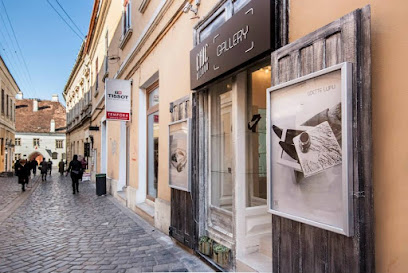
Bulbuci Waterfall
Explore the breathtaking Bulbuci Waterfall in Apuseni Natural Park, a stunning natural attraction perfect for nature lovers and adventure seekers alike.
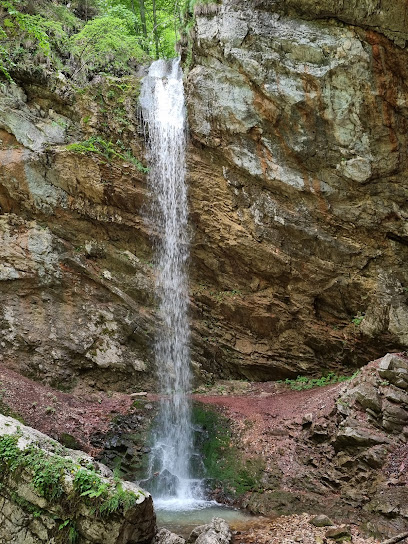
Pepco
Explore Pepco in Ștei for affordable clothing, baby essentials, and toys in a friendly shopping environment.
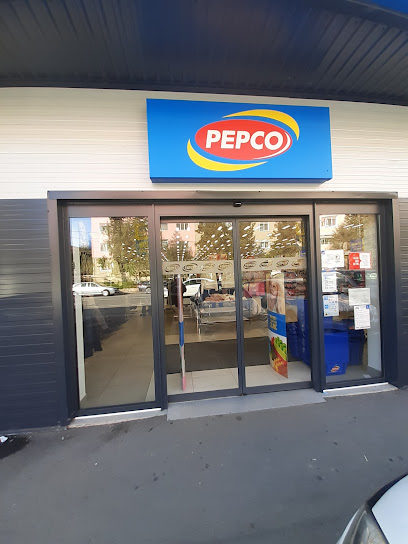
Pensiunea Anisoara
Discover the flavors of Romania at Pensiunea Anisoara, a charming supermarket in Chișcău offering local delicacies and fresh produce.
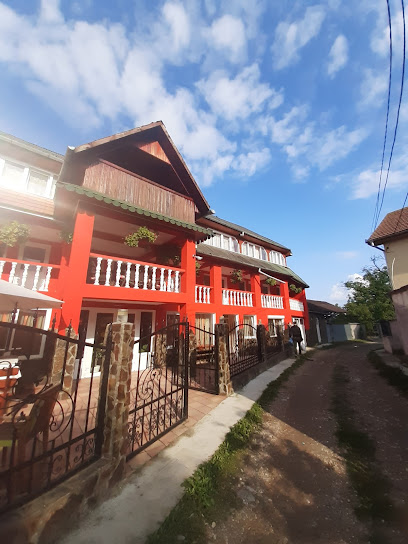
Two steps
Explore Two Steps Supermarket in Ștei for a taste of local culture, fresh produce, and a variety of international products.
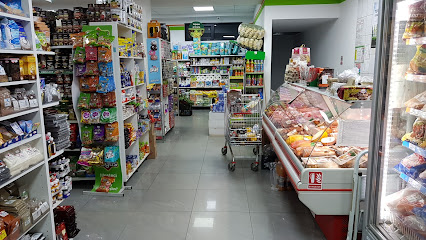
Bihor Mountains
Explore the stunning Bihor Mountains in Romania for breathtaking views, diverse wildlife, and unforgettable outdoor adventures.
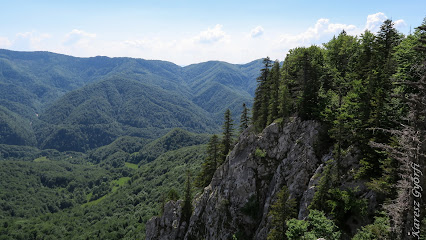
Piata agroalimentara
Explore Piata Agroalimentara in Albac for fresh, local produce and a taste of Romania's vibrant culinary culture.
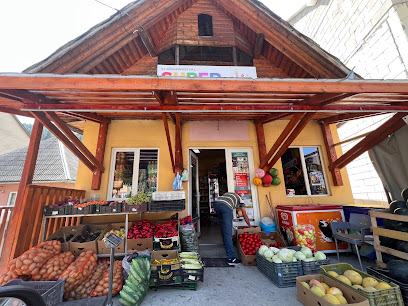
Unicarm
Discover the flavors of Romania at Unicarm Supermarket in Ștei, where local products meet international variety for a unique shopping experience.
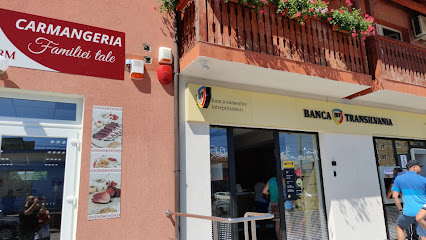
Drink Shop Lotus Center Oradea
Explore a vibrant shopping experience at Drink Shop in Lotus Center Oradea, offering a delightful variety of beverages and snacks.
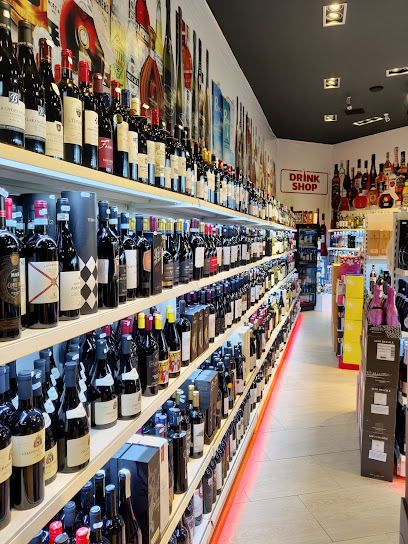
Souvenir Shop
Discover unique gifts and local crafts at Oradea's charming Souvenir Shop, where every purchase tells a story of Romanian culture.
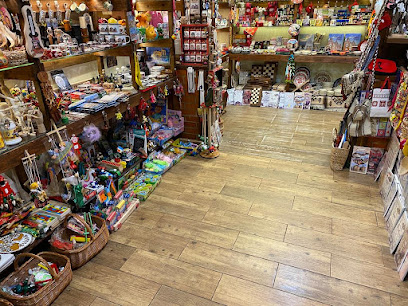
Essential bars & hidden hideouts
Morrigan's Coffe & Pub
Experience the warmth of Irish culture at Morrigan's Coffee & Pub in Oradea, where delicious food and vibrant atmosphere meet.
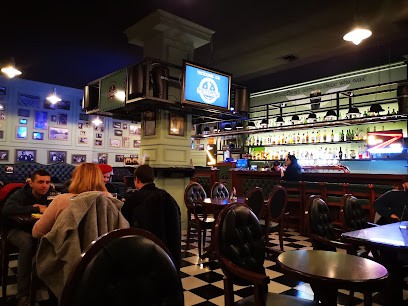
Gekko Pub & Banya Klub
Experience the lively nightlife and unique wellness offerings of Gekko Pub & Banya Klub in Oradea, a must-visit for tourists seeking relaxation and fun.
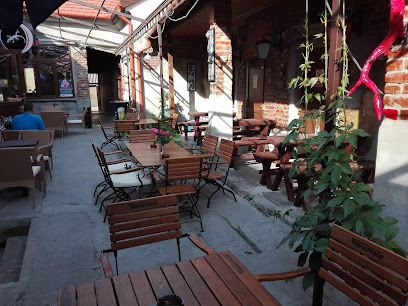
LORD'S
Experience the vibrant nightlife of Oradea at LORD'S, a lively pub offering a wide selection of drinks and a warm social atmosphere.
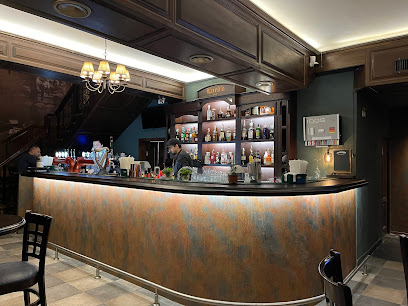
Green Pub Oradea
Experience the vibrant atmosphere of Green Pub in Oradea, where local flavors meet lively entertainment for an unforgettable night.
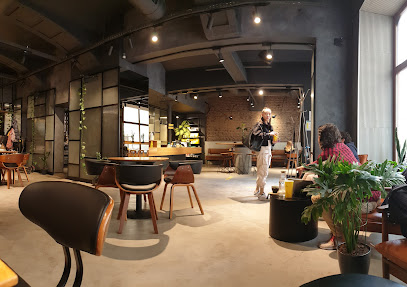
La Dănuț
Experience the warmth of Romanian hospitality at La Dănuț, a charming bar in Băița offering local drinks and a cozy atmosphere.
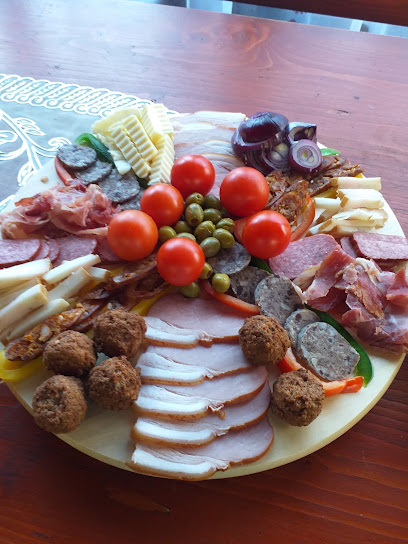
Romina's Disco Bar
Discover the vibrant nightlife at Romina's Disco Bar in Hălmagiu, where great music, drinks, and unforgettable memories await you.
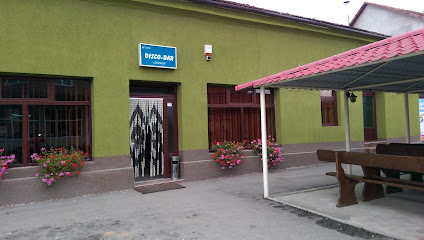
Casa Mara
Explore the vibrant atmosphere of Casa Mara, a charming bar in Urviș de Beiuș, offering exquisite drinks and local culture in a picturesque setting.
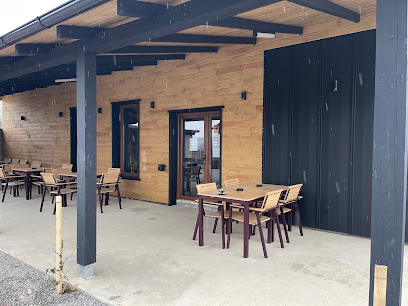
La pod
Experience the warm hospitality and delightful beverages at La Pod, a charming bar in the heart of Cîmpani, Romania.
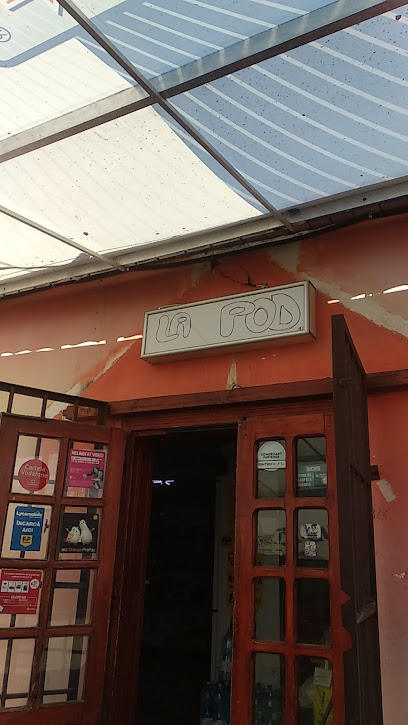
Mountain Slip'N Slide
Discover the thrill of water slides and the charm of a lively bar at Mountain Slip'N Slide, a perfect getaway for adventure lovers.
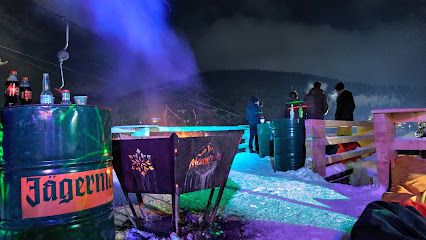
Statia Ciucas
Discover Statia Ciucas, a charming bar in Ștei, where local flavors and warm ambiance create the perfect retreat for tourists.
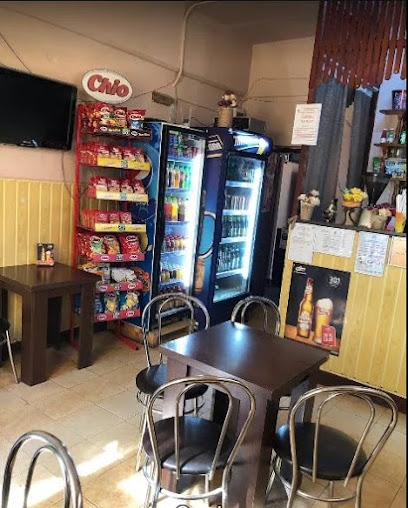
ErdeiCaffe
Discover the cozy charm of ErdeiCaffe, a must-visit bar in Șuncuiuș, Romania, where delightful drinks meet warm hospitality amidst stunning landscapes.
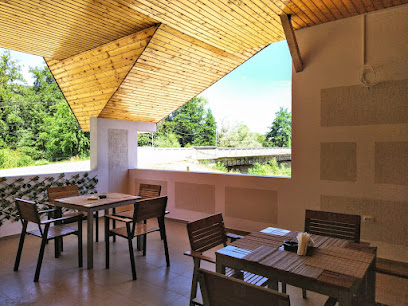
Daisy
Discover the charm of Daisy, a cozy bar in Ștei, Romania, offering delightful drinks and a vibrant atmosphere for tourists.

Rainmoney rss
Discover the cozy charm of Rainmoney RSS, a local bar in Dezna offering a unique blend of hospitality and vibrant atmosphere.
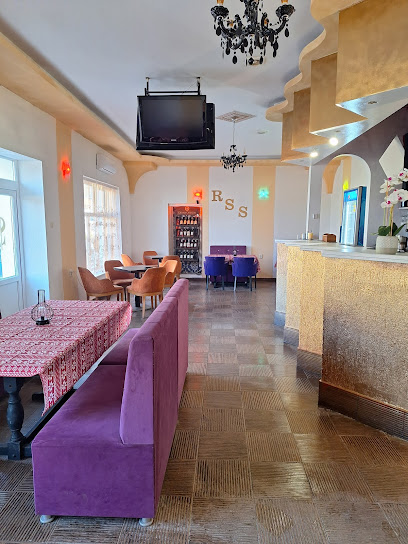
Stela
Discover Stela in Zdrapți, where local culture meets a cozy bar ambiance perfect for unwinding and socializing.
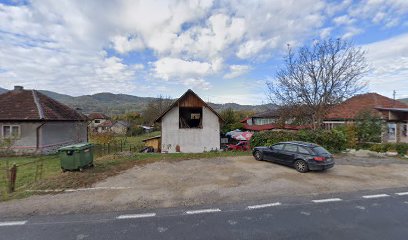
Tavi
Discover Tavi, a vibrant bar in Zdrapți, blending local culture and refreshing beverages for an unforgettable experience.
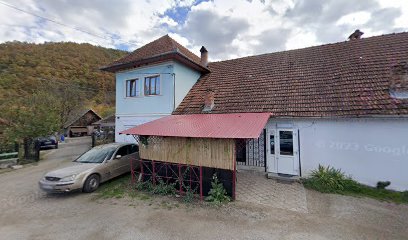
Local Phrases about Bihor Mountains
-
- HelloSalut
[saˈlut] - GoodbyeLa revedere
[la re.veˈde.re] - YesDa
[da] - NoNu
[nu] - Please/You're welcomeTe rog
[te roɡ] - Thank youMulțumesc
[mul.t͡suˈmesk] - Excuse me/SorryScuzați-mă
[sku.zaˈt͡sɨ mə] - How are you?Ce faci?
[t͡ʃe ˈfat͡ʃʲ] - Fine. And you?Bine. Și tu?
[bi.ne‿ʃʲ ˈtu] - Do you speak English?Vorbiți engleză?
[vorˈbit͡sʲ enˈɡlezə] - I don't understandNu înțeleg
[nu ɨnˈt͡se.leɡ]
- HelloSalut
-
- I'd like to see the menu, pleaseAș dori să văd meniul, vă rog
[aʃ doˈri sə vəd ˈmeni.ul və roɡ] - I don't eat meatNu mănânc carne
[nu mə.nɨŋk ˈkar.ne] - Cheers!Noroc!
[no.rok] - I would like to pay, pleaseAș dori să plătesc, vă rog
[aʃ doˈri sə pləˈtesk və roɡ]
- I'd like to see the menu, pleaseAș dori să văd meniul, vă rog
-
- Help!Ajutor!
[a.ʒuˈtor] - Go away!Du-te!
[du.te] - Call the Police!Sună la poliție!
[suˈnə la poˈlitsje] - Call a doctor!Sună un doctor!
[suˈnə un doktor] - I'm lostM-am pierdut
[mam pjerˈdut] - I'm illSunt bolnav
[sunt bolˈnav]
- Help!Ajutor!
-
- I'd like to buy...Aș vrea să cumpăr...
[aʃ vre.a sə kumˈpar] - I'm just lookingDoar mă uit
[do.ar mə ʊ.it] - How much is it?Cât costă?
[kɨt kosˈtə] - That's too expensiveE prea scump
[e pre̯a skump] - Can you lower the price?Puteți să scădeți prețul?
[puˈteʦ sə skəˈdets priˈtsul]
- I'd like to buy...Aș vrea să cumpăr...
-
- What time is it?Cât e ceasul?
[kɨt e t͡ʃe̯a.sul] - It's one o'clockEste ora unu
[este o.ra unu] - Half past (10)Jumătate după (zece)
[ʒu.məˈta.te du.pə ˈze.t͡ʃe] - MorningDimineața
[di.miˈne̯at͡sa] - AfternoonDupă-amiază
[du.pə aˈmja.zə] - EveningSeara
[ˈse̯a.ra] - YesterdayIeri
[ˈjerʲ] - TodayAstăzi
[asˈtəzʲ] - TomorrowMâine
[mɨˈjne] - 1Unu
[unu] - 2Doi
[doj] - 3Trei
[trej] - 4Patru
[pa.tru] - 5Cinci
[t͡ʃinʧ] - 6Șase
[ʃa.se] - 7Șapte
[ʃap.te] - 8Opt
[opt] - 9Nouă
[no.wə] - 10Zece
[ˈze.t͡ʃe]
- What time is it?Cât e ceasul?
-
- Where's a/the...?Unde este unul/una...?
[un.de eˈste u.nul/u.na] - What's the address?Care este adresa?
[kare eˈste aˈdresə] - Can you show me (on the map)?Puteți să-mi arătați (pe hartă)?
[puˈteʦ səˈmi aˈrətat (pe harˈtə)] - When's the next (bus)?Când vine următorul (autobuz)?
[kɨnd vi.ne urˈməto.rul (au.toˈbuz)] - A ticket (to ....)Un bilet (spre ....)
[un bi.let spre]
- Where's a/the...?Unde este unul/una...?
History of Bihor Mountains
-
The Bihor Mountains have been inhabited since ancient times, with archaeological evidence pointing to the presence of Dacian tribes. The Dacians, known for their fierce independence and warrior culture, established fortified settlements, known as 'davae,' in the region. These settlements served both as living quarters and defensive positions against Roman invasions.
-
The Roman Empire's expansion into Dacia, completed by Emperor Trajan in 106 AD, marked a significant historical event for the Bihor Mountains. The Romans established military camps and roads, integrating the region into the broader Roman Dacia province. This period saw the introduction of Roman architecture, culture, and improved infrastructure.
-
During the medieval period, the Bihor Mountains were strategically important for defending against invasions. The region is dotted with ruins of fortresses and castles, such as the Cetatea Biharia and the fortified church of St. Ladislaus. These structures were built by various ruling entities, including Hungarian and local Romanian nobility, to protect their lands and assert control.
-
The Bihor Mountains came under Habsburg rule in the 18th century, following the Treaty of Karlowitz in 1699. This period brought significant administrative and economic changes, including the introduction of new agricultural practices and the development of mining activities. The Habsburg influence is still visible in the architectural styles of some towns and villages.
-
The Bihor Mountains are a treasure trove of Romanian and Hungarian cultural heritage. The region is known for its rich folk traditions, including traditional music, dance, and crafts. Annual festivals and fairs, such as the 'Târgul de Fete de pe Muntele Găina,' celebrate these traditions, offering visitors a glimpse into the vibrant cultural life of the local communities.
-
The Bihor Mountains witnessed significant events during World War II, including battles and local resistance efforts against Axis forces. Post-war, the region fell under communist rule, leading to industrialization and collectivization efforts. The legacy of this period is still evident in the architecture and socio-economic landscape of the area.
-
In addition to its rich history, the Bihor Mountains are renowned for their natural beauty. The Apuseni Natural Park, established to protect the region's diverse flora and fauna, includes spectacular karst formations, caves, and gorges. Conservation efforts aim to preserve these natural wonders while promoting sustainable tourism.
Bihor Mountains Essentials
-
The Bihor Mountains are located in northwestern Romania, within the Apuseni range. The nearest international airport is Cluj-Napoca International Airport, approximately 120 kilometers away. From Cluj-Napoca, you can rent a car or take a bus to Oradea, which is the closest major city to the Bihor Mountains. From Oradea, local buses, taxis, or rental cars can take you to various points within the Bihor Mountains.
-
Within the Bihor Mountains, the most convenient way to travel is by car, as it allows you to explore remote areas at your own pace. Local buses and minibuses (called 'maxi-taxis') connect larger towns and villages, but services can be infrequent. Taxis are available in towns like Oradea and Beiuș. For a more adventurous experience, consider renting a bicycle or hiking through the well-marked trails.
-
The official currency in Romania is the Romanian Leu (RON). Credit cards are widely accepted in larger towns and tourist areas, but it is advisable to carry cash, especially in smaller villages and rural locations. ATMs are available in larger towns like Oradea and Beiuș. Ensure you have sufficient cash for remote areas where card payments are not accepted.
-
The Bihor Mountains are generally safe for tourists. However, standard travel precautions should be taken. Keep an eye on your belongings, especially in crowded places. Avoid hiking alone in remote areas and always inform someone of your plans. There are no specific high-crime areas targeting tourists, but be cautious in isolated spots and during nighttime.
-
In case of an emergency, dial 112 for immediate assistance. This number connects you to police, medical services, and fire departments. It is advisable to have travel insurance that covers medical emergencies. Larger towns like Oradea and Beiuș have medical facilities and pharmacies where you can get help and purchase medications.
-
Fashion: Do dress in layers, as mountain weather can be unpredictable. Wear sturdy hiking boots for trekking. Avoid wearing overly revealing clothing in rural areas. Religion: Do respect local customs and traditions. When visiting churches or monasteries, dress modestly and cover your head if required. Public Transport: Do be mindful of local etiquette on public transport. Offer your seat to elderly passengers. Don’t eat or drink on public transport. Greetings: Do greet people with a handshake and maintain eye contact. A friendly 'Bună ziua' (Good day) is appreciated. Eating & Drinking: Do try local delicacies and accept food offerings graciously. Don’t refuse hospitality, as it can be considered impolite.
-
To experience the Bihor Mountains like a local, visit the traditional markets in towns like Beiuș for fresh produce and local crafts. Engage with locals, who are usually friendly and eager to share stories about their heritage. Don’t miss exploring the karst landscapes, caves, and waterfalls, such as the Scărișoara Cave and Rădesei Gorge. Participate in local festivals and events to immerse yourself in the culture.
Nearby Cities to Bihor Mountains
-
Things To Do in Cluj-Napoca
-
Things To Do in Arad
-
Things To Do in Debrecen
-
Things To Do in Baia Mare
-
Things To Do in Satu Mare
-
Things To Do in Târgu Jiu
-
Things To Do in Sighisoara
-
Things To Do in Nyiregyhaza
-
Things To Do in Szeged
-
Things To Do in Râmnicu Vâlcea
-
Things To Do in Drobeta-Turnu Severin
-
Things To Do in Mukachevo
-
Things To Do in Miskolc
-
Things To Do in Kecskemet
-
Things To Do in Subotica











